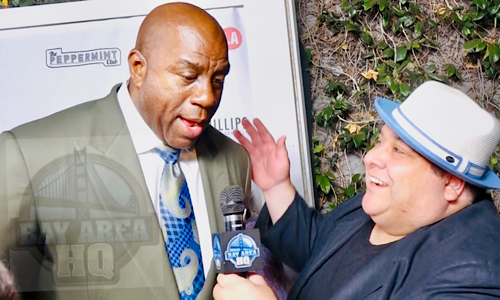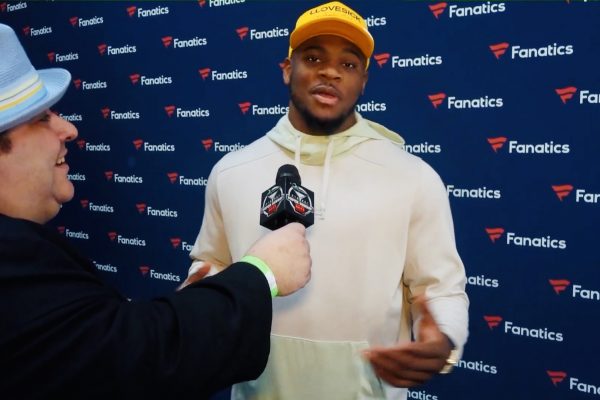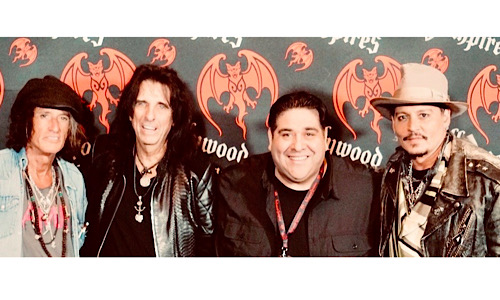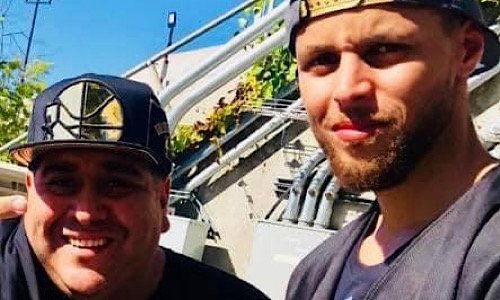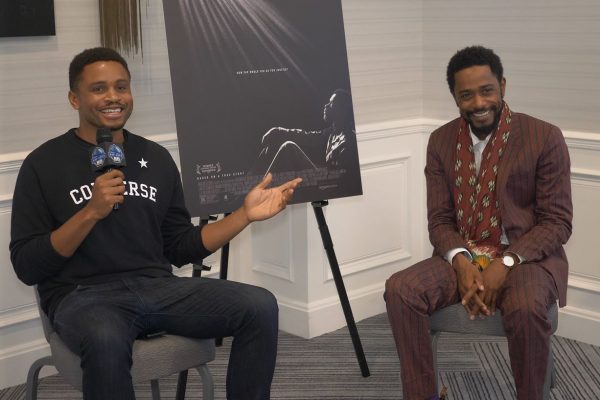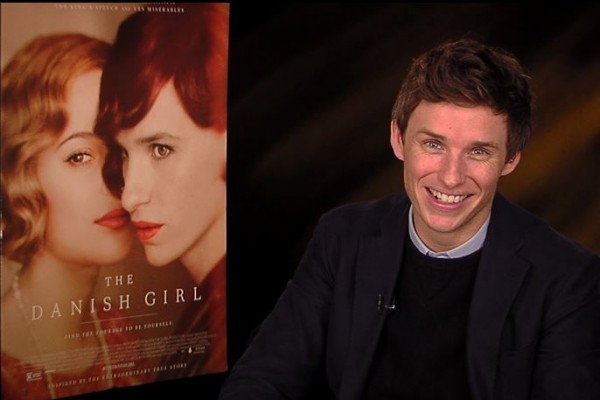WATCH: James Franco Talks VR, Cinequest Award, & More – The actor accepted the prestigious Maverick Award at the Storytelling Reimagined Conclave panel. On Sunday afternoon, at the Four Seasons in Palo Alto, Franco was a panelist along with Jens Christensen (CEO and Founder, Jaunt VR) and Marty Cooper (Father of the Cellphone). He shared fun stories about working on General Hospital, experiencing Virtual Reality at Sundance Film Festival, and more. After the conversation, he received the Cinequest Film Festival Award, previously given to actors such as Harrison Ford and Rosario Dawson. The Maverick Spirit Award is given to influential individuals who embody the independent and innovative mindset. It is the most prestigious award given at the Cinequest Film Festival.
The Panel
James Franco
If you want to try to pin down James Franco, you’d better be really quick and have a lot of pins nearby. Much heralded and much analyzed, this bona fide, modern-day Renaissance man doesn’t dabble; whatever he takes on, it’s the full plunge, with both feet, arms, head, and heart—his entire being. Actor, director, producer, writer, author, performance artist, meta-explorer, and teacher, Franco lays waste to the phrase “multi-tasking.” Attempting to label him would be a mistake, but if you called him a mega-tasker, you’d at least be somewhere in the ballpark.
Even as a boy, growing up in Palo Alto, Franco approached life with intensity and a thoroughness of purpose. When he was presented with a set of building blocks, for instance, the ensuing, usually complex, structure incorporated every single one. Possessing boundless curiosity and seemingly unlimited energy, he is in perpetual motion, swimming furiously, yet gracefully, in his personal sea of creativity. Does he ever rest? “Never,” Franco says. “It’s an impossibility. I don’t even like to sleep. I feel as if there’s so much to do.”
Following high school graduation, Franco headed south to UCLA and took a theater class to overcome shyness. Bitten by the bug, he committed completely to becoming an actor, dropping out of college, and enrolling in the intense and rigorous program at the renowned Studio 4 Playhouse West. In 1999, he was fatefully cast by director Judd Apatow in the short-lived, but critically acclaimed—and eventual cult hit— television series Freaks and Geeks. Co-stars included Seth Rogen and Jason Segel.
Franco’s breakout role came in the 2001 TNT biopic James Dean for which he received a Golden Globe Award. Robert De Niro was so impressed with Franco’s performance that he personally cast him as the junkie son, Joey, in City by the Sea. Since then, Franco has amassed well over 100 acting credits, including 127 Hours, (Best Actor Academy Award nomination), Milk, Spider-Man trilogy, Pineapple Express, Oz the Great and Powerful, Rise of the Planet of the Apes, and Eat, Pray, Love.
One of his strangest, most interesting gigs was a self-initiated, 54-episode stint (2009-2012) on the soap opera General Hospital, as a crazy artist and serial killer named…Franco. With enthusiastic endorsement from the show’s producers, actor Franco’s idea was to create a new way of watching the long-running program, where the Franco character almost knows he’s an actor on a soap opera. The result was the creation of a bizarre meta vortex of images that, as performance art, examined the very nature of the viewing experience.
Eager to continue the education he’d abandoned earlier, Franco, at age 28 (then a steadily employed actor), returned to UCLA for a BA in Creative Writing. Concerned that other students would think he was being given a pass because of his celebrity and acting credentials, he took on additional mega units to demonstrate the seriousness of his intentions. He loved the course work so much that after UCLA, he immediately entered graduate degree programs in filmmaking (NYU), English/fiction writing (Columbia, Brooklyn College, Yale), and poetry (Warren Wilson College in North Carolina). One of the products of his studies is the short story collection, Palo Alto, published in 2010.
Now, at 37, Franco has also donned the instructor’s mantel at NYU, USC, and UCLA. “I’ve been very fortunate. I had to work hard but had opportunities to do everything that I wanted. That’s one of the reasons I’m teaching. I’m trying to give back to other people. That’s what I guess I want to do now—continue to be creative in a way that I can give back.” – P.D. Crane
Jens Christensen, CEO and Founder, Jaunt
Jens was an Entrepreneur in Residence at Redpoint Ventures prior to Jaunt. Before that he was a founder and CEO of Ellerdale, an AI startup focused on real-time semantic analysis. Ellerdale assembled a world-class technical team and was one of the first companies to process the full Twitter stream, enabling it to identify and organize trending topics in real-time. Flipboard, the worlds’ first social magazine, acquired Ellerdale in 2010. Jens was also a founder of WebSwap, a pioneering barter site. Earlier, he was a founder and CEO of PostModern, a software company that developed the first Java ORB. It merged with Visigenic, a private enterprise software company, where he continued on as CTO and board member through its IPO and subsequent acquisition by Borland. He holds a Ph.D. in Computer Science from Stanford University and a B.A. in Computer Science from Columbia University.
Martin Cooper, Father Of The Cellphone
Martin “Marty” Cooper exemplifies the never-ending passion needed to fuel great creations of science and art. In a world where instantaneous success often replaces lasting impact, Marty’s life and work showcase a brilliant mind, ebullient spirit and massive heart. Marty believed, before it seemed possible, that people wanted to connect with people and do it while being mobile. He saw the world we all enjoy today, and because of his vision, innovations, leadership and persistence the cell phone has become a powerful global tool of communication and creativity. Yet it took Marty 30 years to make his vision a reality. Most would have given up after 30 days or 30 months of seeming failure.

